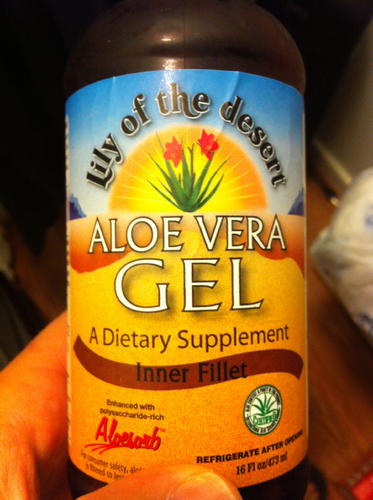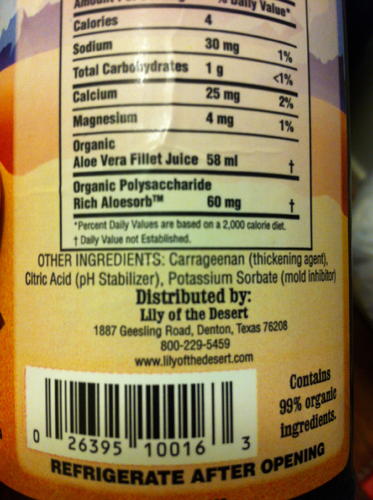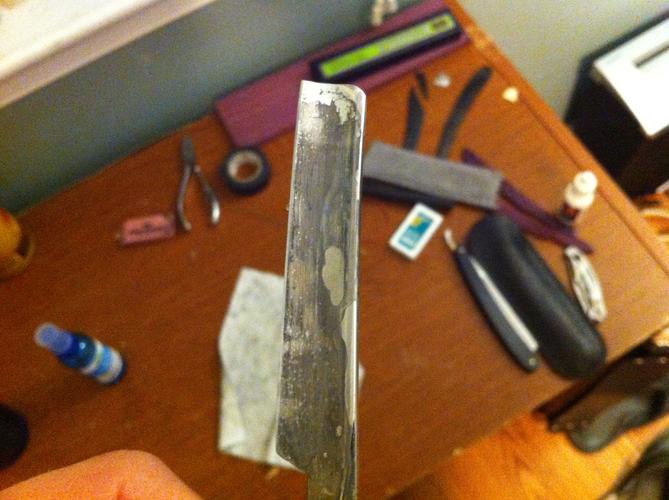Results 11 to 18 of 18
Thread: Creating Patina
-
07-29-2012, 05:24 AM #11

OH gosh do not rush the process....
Just shave with it for a month and wipe it
dry with tissue each time....
For carbon steel kitchen knives I have been known to slice lemon,
or apple as thin as possible. Wipe it dry with tissue, rinse after
a moment under very hot tape water, make one more slice... Since I get 50+ slices out
of a lemon the process takes a bit of time for the rinse and dry per slice...
The acid starts oxidation (rusting) and by doing it a little by the steel develops a thin oxide layer and
no longer imparts that 'iron' flavor to some things. I only have one carbon steel kitchen
knife anymore but even stainless has a moment after polishing where
it can smell/ taste like iron so I also wipe and rub with a little bit of something
slightly acid (vinegar, fruit, onion.... gets sacrificed).
-
07-29-2012, 08:01 AM #12Plausibly implausible





- Join Date
- May 2011
- Location
- Mount Torrens, South Australia
- Posts
- 5,979
Thanked: 485
I always rush every process, and I always overdo everything, which can make me rather manic. If I were to do this again I may either try and protect the edge of use an applicator. Has anyone noticed if the process F's up the edge, or is it just me? It seems to me it's logical that it would F up the edge...
Stranger, if you passing meet me and desire to speak to me, why should you not speak to me? And why should I not speak to you?
Walt Whitman
-
07-29-2012, 08:17 AM #13

With you on this one Carl - a year or two ago I was all about scouring off every last remnant of pitting, patina and rust in order to blind passing airplanes with my shiny shiny instruments - nowadays I much prefer a bit of history to show (though I'll happily do the sandy thing if there's active rust that needs terminating).
-
08-04-2012, 02:20 AM #14

Carl,
I was using a dietary aloe vera gel. I am doing a little experiment with it too. I just dumped some over a blade I do not use. I also mix tea tree oil and aloe gel so it could have been the EO.


update...So after 30 minutes the blade turned out like this:

I am thinking the citric acid might be the culprit.Last edited by Mephisto; 08-04-2012 at 03:19 AM. Reason: added info
From their stillness came their non-action...Doing-nothing was accompanied by the feeling of satisfaction, anxieties and troubles find no place
-
08-04-2012, 03:27 AM #15

Urine. Age old method of aging almost all metals. First found out about this in an art class I took in college. Used by both artist and forgers!
-
08-04-2012, 03:48 AM #16I used Nakayamas for my house



- Join Date
- Aug 2009
- Location
- Des Moines
- Posts
- 8,664
- Blog Entries
- 1
Thanked: 2591
Acid dip is all that is needed for creating patina, easiest acidic source is vinegar.
-
08-05-2012, 12:16 AM #17Plausibly implausible





- Join Date
- May 2011
- Location
- Mount Torrens, South Australia
- Posts
- 5,979
Thanked: 485
Yeah, the vinegar worked really well for me. Mephisto, try the aloe without anything else. As you saw from the picture using the raw juice squeezed from the plant, the result was very brown.
However, I soaked a Swedish Eric Anton Berg for hours in the vineagar with little result. May have been due to the different steel or maybe the vinegar had already 'reacted' fully when i put the first razor in (I added the second to the bowl an hour after the first).
I'm buying two Swedish framebacks in original condition, original scales and all and will leave them just as they are. I'll hone them of course. Have I already mentioned that? I may have already mentioned that...Stranger, if you passing meet me and desire to speak to me, why should you not speak to me? And why should I not speak to you?
Walt Whitman
-
08-06-2012, 08:55 PM #18

Vinegar worked for me the best too. Heat it up, put the clean blade in it, leave it for 10 minutes, take it out, clean the blade, and repeat until the color you are after appears. Reheat the vinegar if it cools meantime

In my experience, about 3x10 minutes in 20% vinegar makes the blade almost black.


 10Likes
10Likes LinkBack URL
LinkBack URL About LinkBacks
About LinkBacks








 Reply With Quote
Reply With Quote
